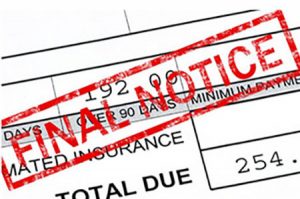Bankruptcy
Are you feeling you need a reset, a way to regain your financial footing? If so, then bankruptcy may be your best option to consider.
The Orlando Law Group has several attorneys who can assist you with your Orlando bankruptcy, for both Chapter 7 bankruptcy and Chapter 11 bankruptcy. We fully understand Florida bankruptcy laws and how they can affect you and your finances.
The goal for any bankruptcy lawyer is to help you minimize any potential effects of financial difficulties and put you in a position for a successful outcome in your case.
Reach out to us today and let us review your specific situation to determine the best path forward.
Your Questions About Bankruptcy
What is bankruptcy?
Bankruptcy involves an individual or a business that is in a financial predicament, preventing them from paying their outstanding debts. Bankruptcy provides an opportunity to have a fresh financial start by removing debts that cannot be paid.
With the completion of the bankruptcy, the debtor is relieved of the impossible financial debt obligations built up before the petition.
What happens when I file for bankruptcy protection?
Bankruptcy is more than just paperwork; it is a court proceeding that involves a judge and, many times, a court trustee. These officials examine the debts, liabilities, and assets of the person or business who are unable to pay their debts. They then make an official decision on whether to discharge the financial obligations. If the debts are discharged, the creditors can no longer legally require the debtor to pay them.
Is there a reason I should file for bankruptcy?
There are many reasons that someone’s financial situation collapsed. Ranking near the top is bad decision-making, but there are as many reasons for the need for debt relief as people who are petitioning for bankruptcy.
What is Chapter 11 bankruptcy?
While Chapter 11 bankruptcy is often something most people have heard, it is not traditionally used for individuals. Instead, Chapter 11 bankruptcy is used by companies to pause paying debts, allowing it time to create a business plan to ensure it is profitable and paying debts after exiting bankruptcy protection.
What is Chapter 7 bankruptcy?
Chapter 7 bankruptcy is the most common form of bankruptcy protection for individuals. In a nutshell, this form of bankruptcy can allow people to essentially erase different types of debts. This might include things that you owe like car loans, credit card debt, medical debt, etc.
When you file for Chapter 7, you list all of your asset, debts and income. Then the trustee assigned to your case determines if there are assets that can be sold to pay off debts or if there are other ways to satisfy a person’s debts.
What is Chapter 13 bankruptcy?
Chapter 13 is also used for individuals mostly, but it should be considered a plan to repay debts instead of ending debts. Under this type of bankruptcy, you must meet very specific limits on how much debt you have, plus have a stable income to pay it back.
The trustee for a bankruptcy case will develop a payment plan for creditors for individuals to repay over the course of three to five years.
How do bankruptcy attorneys get paid?
Bankruptcy cases are billed on an hourly basis in most cases, meaning you only pay for the exact amount of time spent on your case.
How much does bankruptcy cost?
That truly depends on your specific case. Aside from attorney costs that depend on the complexity of the case, there is a court fee and the cost of a credit counseling class that is required by law. That course only costs around $25 however.
I have to take a credit counseling course?
Yes, this is required by law and must be complete before you file for bankruptcy protection.
What is the trustee?
The trustee is an individual appointed by the court who specializes in determining the best path forward. The trustee will review all your assets, debts and income and will determine how to best put you on a path to long-term financial success.
Do we work with the trustee to ensure the best outcome?
To some extent. During Chapter 7 bankruptcy, you will have a hearing where the trustee will ask you questions under oath. All creditors are invited to attend the hearing as well. Also, creditors may petition the court in your case and that petition will be reviewed by the trustee.
Which bankruptcy should I file?
This depends on your individual situation. Most individuals seek Chapter 7 protection, however.
Can you file bankruptcy without a lawyer?
Of course, you can. But bankruptcy can be extremely complicated with laws changing on a regular basis. It is better to have someone who’s career is spent working with bankruptcy cases to help you.
hey can help you understand whether Chapter 13 or Chapter 7 is the best option for you and that you are able to file. There are certain restrictions when it comes to filing, and they can make sure you are following the right path.
They can also help you to better understand whether you should file at all. For example, if your financial situation changes before filing, should you still file? Should you file sooner? Having an attorney working with you will make it easier for you to understand exactly what you have to do and when you need to do it.
What assets are protected in bankruptcy?
Every state has different rules for exempted property. In Florida, a debtor who has been a permanent resident of Florida for two years immediately preceding filing bankruptcy is allowed certain exemptions.
These include all equity in the debtor’s homestead if the debtor has lived in the home for 40 months or longer before filing bankruptcy. If the debtor has lived in the home for less than 40 months only $137,000 of equity in the home would be exempt. Furthermore, an individual debtor is allowed $1,000 for personal property and an additional $4,000 “wild card” if the debtor does not have a homestead. Joint debtors (husband and wife) get $2,000 for personal property and an additional $8,000 if they do not have a homestead.
Other exemptions include 401K plans, tax-deferred retirement plans, pensions, cash value of life insurance, IRA’s, disability income, and social security income.
Finally, $1,000 of equity in a car is exempt.
Can you file bankruptcy on IRS debt?
Yes, your tax debt is included in any bankruptcy filing, but how bankruptcy affects your IRS debt is highly dependent on your taxes and what type of bankruptcy protection you seek. Here’s a great chart from the IRS to show how bankruptcy affects your tax debts.
Will I lose my home if I file bankruptcy?
Like so much in legal proceedings, the answer depends on a lot of factors. But there are ways you can keep your home as long as you have the ability to pay the mortgage payments.
Will filing bankruptcy stop foreclosure?
Part of the appeal of filing of for bankruptcy is that all efforts to collect debts must be done through the bankruptcy court. At the time of filing, the foreclosure procedure would be paused, but if you can not afford to pay mortgage payments which caused the foreclosure, a trustee could cause you to forfeit the property.
Can I file bankruptcy without my spouse knowing?
That would be difficult unless all assets in the marriage are clearly defined as to whose property they are, which is very rare and there is no comingling of income.
Can I file bankruptcy without my spouse being involved?
Yes, it is not always easy to do so, but if there is an opportunity to protect your spouse’s credit, you should try to do so. That said, it’s not often where this could happen.
How long do you have to wait to file bankruptcy again?
if you have gone through Chapter 7 in the last eight years or Chapter 13 in the last six years and your case was successful, you will not be able to file for another Chapter 7.
What do I do after bankruptcy discharge?
Hopefully, you will be in a position to live your life without the albatross of bills and debts around your neck. Most of your debts – but not all – will be gone and collectors can not try to collect. But, the key is to try and avoid going into debt again.
What debts will I still have?
There are some debts that last beyond bankruptcy. For instance, if you owe any fines from a criminal case, or owe alimony or child support in a family law case. Student loan debt is also not covered by bankruptcy protection.
How long will the bankruptcy stay in my credit report?
For a Chapter 7 bankruptcy, it’s 10 years. For a Chapter 13, it’s seven years. While that seems like a long time, by filing for bankruptcy protection, you’ll get a fresh start and the amount of time you struggle to get out of the financial hole may be shorter when you file for bankruptcy.
How can I establish credit after bankruptcy?
The most important thing to do is pay your bills on time for a long time, but everyone’s credit score is very individualized. One of the keys you can do is get a secured credit card and make sure that it is paid off every month.
The most critical aspect of establishing credit is to not take on debts you do not have the ability to pay.
Can I rent after bankruptcy?
Yes, there is nothing preventing you from renting or even buying a new home, although both of those are dependent on your credit score, so working to build that credit score back higher is an important task after your bankruptcy discharge.
Read more about Bankruptcy Issues below:
- Why Waiting to File for Bankruptcy Could Cost You
- Bankruptcy Could Offer You A Way Out
- What to do now if there’s a chance of future bankruptcy
- What happens to student loans in Chapter 13 bankruptcy?
- Everything You Need to Know About Bankruptcy
- Bankruptcy Might Not Be as Difficult as You Think
- Don’t let stigma of bankruptcy stop you from doing the right thing for you and your family
- How Does Bankruptcy Affect Child Support Payments?
How can we help you?
Meet Your Bankruptcy Attorney
Sophia Dean
Bankruptcy Law
Sophia has spent the bulk of her legal career in the world of bankruptcy, student loan law, and debt settlement, assisting many people in taking the first steps towards financial freedom. She takes great pride in obtaining meaningful results for her clients and would be honored to help you.







